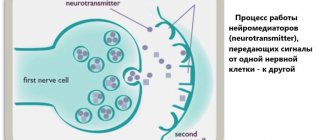There is a lot of untruth in our world. And even if you personally try to live honestly, you probably lie automatically or in small things at least once a day. Don't rush to be indignant. For example, they wake you up with an important call and ask if you can talk - of course, you agree. And similar events occur throughout the day, when it is easier to tell a small lie than to explain the truth in detail. The psychology of lying is quite complex, but we will try to understand all its aspects and understand why people lie and how to recognize deception in time.
What is a lie?
If we turn to an explanatory dictionary for an explanation of the concept of a lie, most likely we will receive the answer that it is “a lie, a distortion of the truth.” But what then is the truth? Truth is a real and true reflection of reality, displayed without distortion. Moreover, this concept exists regardless of the desires and ideas of people. But in psychology, the concept of lying is often given a slightly different definition. According to many experts, it is appropriate to correctly decipher this term as “deliberate misleading of another person or group of persons by reporting incorrect information without prior warning.” In simple terms, the psychology of lying presupposes intent on the part of the liar when deceiving and the complete insecurity of those to whom they lie. A person who encounters untruth as a listener can never be completely sure whether he is being deceived or not.
Paul Ekman, Wallace Friesen “Know a Liar by Their Facial Expression”
This is the next most important book in profiling. It is a continuation of the first one. The facial expressions of the main 7 emotions are described here in great detail. The authors describe in detail the smallest manifestations of insincerity and lies.
Here you will find a detailed guide on how to determine emotions on the face and how they are masked by a person.
Emotions are a path to understanding a person, a signal of danger, desire and a certain feeling. The manual helps you read your interlocutors literally by their faces. It will become your faithful advisor, telling you who to have a good relationship with and who not to open up to. This is a detailed guide to how to respond to anger, contempt and resentment.
Buy a paper book on Labyrinth→
Life is a school of lies
Many parents often turn to child psychologists with the question of what to do if young children (aged 3 years and older) lie. Most often we are talking only about harmless children's fantasies. Many kids have a developed imagination. When combined with vivid fairy-tale images obtained from literature and cartoons, and with a minimum amount of real life experience, their imagination works especially productively. Parents should not be surprised if a monster appears under the bed, elves appear in the forest, and the house cat begins to turn into a tiger at night. The play of imagination is quite harmless as long as negative images do not frighten the child too much, and pleasant ones do not occupy the entire consciousness.
Children usually start to really lie only at school, and we, adults, teach them this. Parents do not have time to notice how their baby is growing up. In a period of endless “Why?” We often, for fun or because of our own laziness/embarrassment, lie to the child. Sooner or later, the little person notices the deception. And indeed: chocolates cannot grow on a tree, and the neighbor, Uncle Vanya, is drunk and smells bad, and not “just tired.” Having understood one of the tools of communication and interaction with others, you really want to try it yourself - this is the psychology of lying. Why do children lie? Most often, they try to lie primarily out of curiosity - whether adults will believe a lie. Another significant reason is fear. If a child does not trust his parents or knows that he faces serious punishment for some offense, it is easier to tell a lie.
Why do we tell lies?
There are many reasons why people lie. Most often it's all about personal gain. Wanting to enlist the support of your interlocutor, to receive some privileges and benefits, you really want to lie. Such lies are most often conscious and thought out. A deceiver can spend several hours creating the most realistic story possible or inventing arguments that are obviously far from the truth. But what other reasons exist for deception, why do people lie? The psychology of lying calls fear of punishment one of the most popular motives that force one to lie. And you shouldn’t think that only schoolchildren cheat for this reason. In fact, many adults are often not ready to take responsibility for their own actions or, on the contrary, inaction. And in this case, it is much easier to lie than to tell the truth and expect retribution.
Alexey Filatov “Profiler’s Notes”
The author was one of the first in Russia to begin studying the topic of profiling. And his works are truly valuable. The book covers 8 sections of modern profiling:
- Facial analysis.
- Analysis of emotions.
- Verification of lies.
- Safety.
- Digital profiling.
- Psychotypologies.
- Neurotechnology.
- Congvistics.
The topics raised in the book are interesting and useful for everyone. I liked how detailed the connection between physiological and psychological reactions is.
At the very beginning, even a child will understand where emotions come from and why they “come”. It is very accessible and simply written, the theory is supported by practice, so everything is well remembered. This is a basic profiler encyclopedia that you simply need to learn.
Buy an e-book on liters→
White lie
We have figured out that most often people cheat for personal gain. But there is another popular type of untruth - a white lie. In this case, by deliberately misleading the interlocutor, the deceiver believes that he is doing the right thing and doing a good deed. But is this really so? Many popular proverbs say that in any situation “the bitter truth is better than a sweet lie.” However, in reality, it is often more convenient for us to hide the death of relatives from older people, the loss of pets from children, and other unpleasant events that can be traumatic. This is a very difficult question, and the decision on what to do—tell the truth or lie—must be made directly by the person who knows the truth. If we are talking about a situation that cannot be influenced regardless of knowledge of the truth, it may be acceptable to hide it or reveal it only partially.
To lie or not to lie?
Any person with high morals, before deceiving another, will think about whether it is worth committing this act. Only seasoned deceivers and scammers, for whom this type of communication is the norm, lie carelessly and regularly. From early childhood we are told that lying is bad, we need to live “correctly”, without hiding anything. The psychology of truth and lies is such that, being forced to lie, or faced with the deception of others, we experience discomfort, shame and indignation. Are you familiar with all these emotions? Then maybe it’s worth trying to work on yourself and give up lying as much as possible. Remember, any negative emotions are extra stress and nervous tension. And we all know that such conditions and impacts negatively affect a person’s psychological and physical health.
Victor Ponomarenko “Practical characterology”
The book consists of data from a psychological study of groups of human character traits. The author developed his own methodology for studying psychotypes and determined a scheme by which they can be studied.
Here are 7 psychotypes. The scheme of their research is as follows:
- general characteristics;
- appearance;
- quality of behavior;
- behavior management;
- features of interpersonal communication.
The manual will be useful to those who work with people, as well as to anyone interested in applied psychology.
Buy an e-book on liters→
The subconscious doesn't like to lie
Scientists have proven that all people, without exception, are naturally programmed to tell the truth. Regardless of the degree of deception and the strength of the conscious desire to lie, our subconscious mind resists this action. Moreover, we are talking not only about psychology; the reaction to untruth can be tracked even on a physical level. It is not for nothing that so-called lie detectors and other devices that allow one to determine with high accuracy whether a person is telling the truth or not have been used for decades. Of course, this option for exposing liars is not suitable for every day, since such equipment cannot be obtained for home use. But the psychology of lies offers a lot of alternative options for recognizing deceptions. The main condition for someone who does not want to be deceived is utmost attention. Listen to your interlocutor and watch his behavior, gestures, intonations.
Arkady Egides “How to understand people, or Psychological drawing of personality”
The book describes in detail the characteristics of each personality type and their behavior in the main areas of life.
The book covers only one side of profiling. If you need knowledge on recognizing lies and hidden emotions, it is better to read additional works by Paul Ekman.
The author tried very hard to describe personality types, but did not do it completely. The manual mentions only 5 types: epileptoids, schizoids, hysteroids, paranoiacs and hyperthymics. But a significant advantage of labor is the “chewing” of each of them.
Buy a paper book on Labyrinth→
Gestures say more than words
Do you want to know the truth, no matter how bitter it may be? You will have to memorize the basics of body language and body language. If during a conversation the narrator constantly, as if “by chance,” touches his face, tries to scratch himself, covers his mouth with his hand, as if joking, or simply touches his lips and chin, most likely he has something to hide. Signs that should also alert you are unnecessary touching of the neck, collar of clothing or jewelry. If a woman fiddles with her earrings and a man rubs his earlobe, these are also “symptoms” of lying.
But it turns out that if you remember all these gestures and consciously avoid them while lying, you can remain undetected? Theoretically, yes, but in practice, even experienced scammers, wanting to lie, completely concentrate on the conversation. They carefully select their words, make sure not to say too much, and try to maintain an even and calm timbre of their voice. The psychology of lying is such that when lying consciously, it is difficult to control both your own voice/speech and body at the same time.
Paul Ekman “The Psychology of Lying”
An excellent guide for beginners who want to learn to understand human microexpressions, gestures and postures. This, one might say, is a reference book, an alphabet and alma mater for all psychologists, criminologists and security workers.
It was there that the basics of instrument-free lie detection were first described. The author devoted a huge part of his life to studying the phenomenon of lies (more than 30 years) and knows everything about this phenomenon.
Buy an e-book on liters→
How and what does a liar say?
When a person deliberately lies, he will speak briefly and to the point. But at the same time, unnatural and unreasonable deepening into the details of the story is possible at times. Psychology will again help us answer the question of why this happens. How to recognize a lie based on the structure of a story? Even if the deceiver has had time to come up with a suitable story, he will try to tell it as quickly as possible. But, afraid of being exposed, our hero will definitely add several digressions to his story, the purpose of which is to demonstrate the realism of the story. What is important: during a conversation, a liar will definitely inquisitively monitor the reaction of the interlocutor, he must be sure that they believed him.
Many liars speak more slowly than usual when they lie. You can also doubt the reliability of the story if your interlocutor often does not finish sentences or repeats them. Ask the narrator something, does he repeat the question before answering it? This means that the likelihood of deception is quite high.
Ilya Anishchenko “5 principles for identifying lies”
The author has thoroughly studied the topic of defining deception. The book describes in detail all 5 signs of lying.
Previously, it contained many references to deciphering the deception of famous politicians. But at present, several educational video lessons associated with the book have been removed.
You can download the book for free on the portal of profiler Ilya Anishchenko.
Psychology of lies and deception: how to expose a liar and not make a mistake?
The easiest way to catch a deceiver is to directly tell him during a conversation: “I don’t believe you.” Fraudsters react sharply to such a statement, often they literally explode, begin to prove that they are telling the absolute truth, and can even feign offense: “Am I lying? Who do you take me for?” Don't rush to apologize. Honest people, when faced with mistrust, most often get really offended and stop talking. If you want to continue the discussion, it is better to apologize first, but continuing the conversation can be quite cool. And such a reaction is also explained by the science of psychology. Detecting lies using an aggressive attack method will help identify a liar with a high degree of accuracy. However, this same psychological technique can seriously offend an honest person and even worsen your relationship.
There are other methods for calculating lies. Ask the narrator to retell the entire story from the end to the beginning (in fact, this is a difficult task even for professional deceivers) or ask various follow-up questions. If a person tells a lie, he will be nervous and sooner or later he will make a mistake when talking about details and some particulars.
We teach a child not to lie
The issue of fantasy and lies in children's stories has already been discussed at the beginning of the article. But if you think that your child is lying too often, and all this has nothing to do with a harmless game of imagination, psychology can help you. Children's lies, as a conscious action, are usually formed during school years. If a preschooler lies, we can say with confidence that, most likely, he copies the behavior of adults. For example, a mother says that she cannot take a longer walk with her child or go to the store for candy because she is sick, and the child will lie about feeling unwell the next time when he does not want to clean up his toys or go to kindergarten.
The older a child gets, the more sophisticated and complex methods of deception he experiences. If you begin to notice lies too often, your first priority as a parent is to try to create a comfortable microclimate at home and instill in your child the idea that he can trust mom and dad with any secrets and tell about all the events of his life. Try to avoid harsh punishments, especially physical ones; instead, don’t be lazy to explain every time exactly what the child is wrong about, and together look for ways to “atone.” For example, if your son gets a bad grade, it is a reasonable punishment to devote an extra hour or two to homework instead of entertainment, and if your daughter breaks a vase, you can instruct her to participate in the cleaning along with her mother.
Types of Liars
There are 7 types of people who lie all the time:
- Psychopaths. These are people who lie for their own benefit, even if they find themselves in a situation where they need to help someone, they will easily lie for their own benefit.
- Extroverts. These are people for whom lying is as easy as breathing, and they themselves believe what they say.
- Narcissistic people. These are people who lie in order to get attention.
- Sociopaths. These are individuals who live and breathe lies.
- Pathological liars. These are people who lie constantly but never admit it.
- The youth. Teenagers can cheat an indefinite number of times; this is a natural stage of socialization. It is difficult for teenagers to fit into society without using lies.
- Salespeople are people who lie all the time in order to earn as much as possible.
The older a person gets, the less he lies. It is difficult to say what causes this, but this fact exists.
What to do with adult liars
Having noticed that their own children lie a lot, a parent can always change something in their upbringing. But what to do if an adult was caught in a lie? It all depends on the degree of closeness of your relationship. If a relative or loved one is lying, the problem of deception can be discussed in a calm atmosphere in private. Try to explain that you can be trusted, and lying is not the best way to build relationships.
The situation is much worse if you encounter outright lies in the business sphere. In this case, it is useless to look for an answer to the question of why people lie. The psychology of lying can only help you notice deception in time. If your personal interests are harmed by misinformation, try to get to the bottom of the truth. Of course, the easiest thing to do is to stop interacting with the pathological deceiver altogether, but if this is not possible, your task is to try to outsmart him.
Mark Knapp, Judith Hall “Nonverbal Communication”
The authors tried to reveal all aspects of nonverbal human behavior. This work explains what nonverbalism is and where it is used; it describes in detail such manifestations as:
- facial expressions;
- pantomime;
- voice pitch;
- appearance;
- touching;
- views;
- location in space.
It tells you in a simple and accessible way how to speak body language and use its signals.
Knowing all the features of nonverbal language, it will be easier for you to understand how to improve the quality of communication, who is blatantly lying to you, and how to protect yourself from hostile people. Suitable for anyone who frequently communicates with people.
Buy a paper book on Labyrinth→
Psychology of human lies: how to refrain from deception yourself?
Popular wisdom says: lie less, sleep peacefully. And indeed, by eliminating lies and all kinds of intrigues from your life, you become freer. It is much easier to live honestly, without choosing the right words when talking with others and without experiencing the fear of exposure. If you are used to deceiving someone quite often, then it will take some time to wean yourself from such behavior. Day after day, try to track the origin of the very desire to lie and deceive someone. You need to learn to literally force yourself to tell the truth. But over time, such behavior will become a habit and become natural for you. Spend time on self-development and working on yourself every day, and you will notice that life will become much easier and more enjoyable.
Don’t forget that the psychology of lies and the psychology of emotions are not at all boring areas of knowledge. By devoting time to studying them, you will definitely learn a lot of interesting and useful things for yourself.











